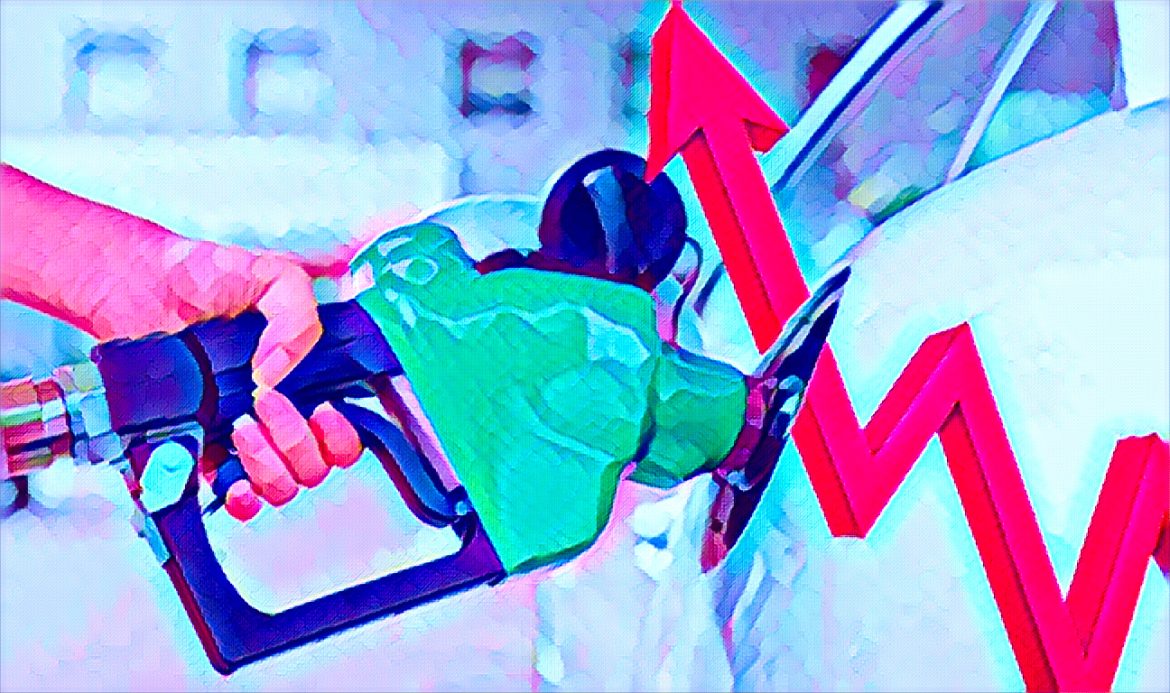Ghana is bracing for a significant increase in fuel prices in the coming weeks, with predictions suggesting that the cost of diesel and petrol could reach as high as GH¢18 per liter. This anticipated rise is primarily attributed to the surging global oil prices and the weakening of the Ghanaian cedi against the dollar. The Institute for Energy Security (IES) has voiced concerns that these factors, coupled with geopolitical tensions in the Middle East, could push crude oil prices to $100 per barrel soon.
In a recent interview with JoyNews, Nana Amoasi VII, the Executive Director of IES, highlighted the economic pressures that escalating fuel costs are likely to impose on Ghana. He explained that the combination of rising international oil prices and the depreciating local currency is set to impact the domestic market severely. “What we see is that within the next six weeks, prices or international prices will go up, and so we will be hit domestically,” Amoasi stated.
Furthermore, he noted that the government is unlikely to alleviate this burden by reducing taxes and levies on fuel, which means that Ghanaians should not expect any relief in fuel prices anytime soon. “We also know that the government may not be willing to reduce taxes and levies on fuel, so we are not expecting any reduction in the coming six weeks. So, we can project that prices of gasoline, LPG, and gas oil may not drop in the next six weeks,” he added.
The National Petroleum Authority (NPA), through its Head of Economic Regulation, Abass Ibrahim Tasunti, has reiterated that it does not have the mandate to regulate fuel prices directly. Instead, these are influenced by several factors including the world market price, the exchange rate, and the margins set by marketers. “NPA does not regulate the prices. We don’t tell the marketers to set your price at so and so. It is influenced by these key factors; the world market price, the exchange rate, and then the margin that they set. Taxes are also part of the price,” Tasunti explained.
The continuous rise in fuel prices has also prompted discussions among various transport unions and the Transport Ministry regarding an increase in transport fares. Samuel Amoah, Deputy Public Relations Officer with the Ghana Private Road Transport Union (GPRTU), disclosed that drivers are proposing a 30 percent fare increment to cope with the higher costs of fuel, spare parts, and other operational expenses. “The 20 percent that we came up with, we considered the cost of spare parts, cost of lubricant, taxes, insurance, and DVLA taxes. Those were the components that we used. Now, last Wednesday there was an increase in the prices of fuel. On Thursday there was an increase again, and even today, we are not looking at 20 percent again, we are looking at around 30 percent,” Amoah stated.
Conversely, David Agboado, the Public Relations Officer of the Concerned Drivers Association, mentioned that his organization would settle for a 20 percent increase in fares. This highlights the varying impacts of the fuel price hikes on different stakeholders within the transport sector.





2 comments
I don’t think the title of your article matches the content lol. Just kidding, mainly because I had some doubts after reading the article.
Bạn có thể theo dõi lịch sử cược, số dư và giao dịch trực tiếp trên app slot365 login link – tiện lợi, bảo mật và cực kỳ nhanh chóng. TONY02-03